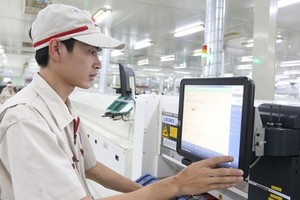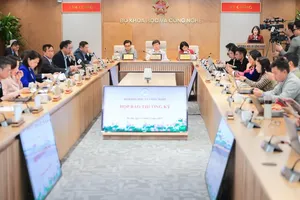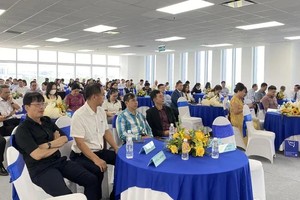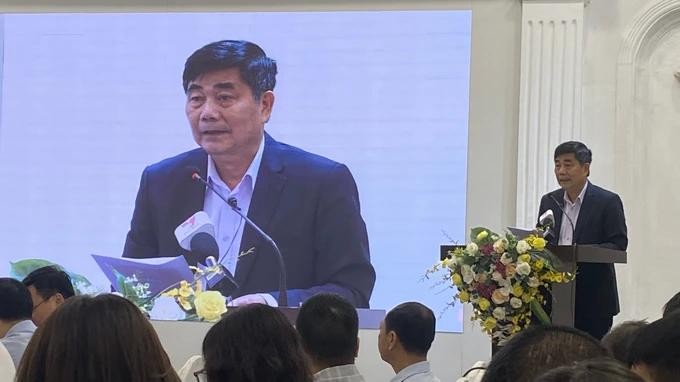
He made the statement at today’s forum titled ‘Achievements and Directions for the Application of Biotechnology in Support of Sustainable Agricultural Development Amidst International Integration’ held by the Department of Science, Technology and Environment under the Ministry of Agriculture and Rural Development, in collaboration with the Vietnam Agriculture Newspaper in Hanoi.
Meeting participants said that in the context of globalization, biotechnology has brought many significant achievements to the agricultural sector in the world.
Former Minister Cao Duc Phat of Agriculture and Rural Development and current Chairman of the Board of Directors at the International Rice Research Institute (IRRI), states that biotechnology has driven significant advancements in agriculture over the last 30 years.
According to statistics from the International Service for the Application of Biotechnology in Agriculture (ISAAA), 73 countries have accepted GM crops.
In Vietnam, this technology has also begun to develop, with more than 220,000 hectares of GM corn being cultivated in 2022, accounting for 26.5 percent of the total corn area in the country.
Nevertheless, Although biotechnology has achieved many successes, in Vietnam, the development of this technology still faces many challenges.
Associate Professor Nguyen Huu Ninh commented that biotechnology in Vietnam is lagging behind developed countries. He attributed the lack of business interest in technology research partnerships to the barriers imposed by mechanisms and policies, such as the Decree 70.
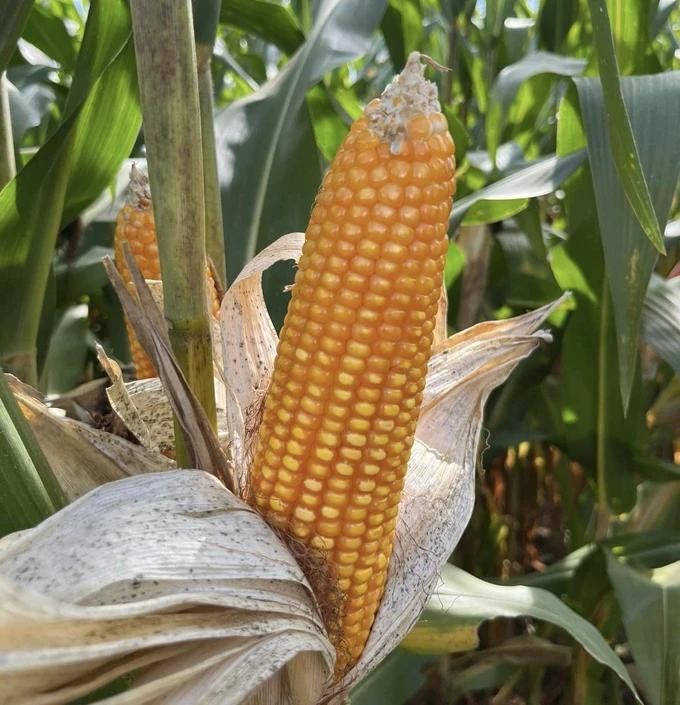
Another challenge pointed out by Mr. Ninh is the lack of investment in research and development (R&D). While large corporations such as Bayer and Syngenta invest billions of US dollars in R&D employing thousands of researchers, Vietnam lacks resources to develop cell technology and nanotechnology.
Domestic enterprises have not focused on investing in genetic technology such as gene editing and asexual reproduction, although these are fields expected to develop strongly in the next five years.
To address these challenges, the Department of Science, Technology, and Environment suggested that the Ministry of Agriculture and Rural Development prioritize the establishment and efficient utilization of key laboratories. Cellular, nano, and gene editing technologies should be emphasized to develop high-value biotechnological products.
Former Minister Cao Duc Phat also highlighted the importance of Vietnam's determination to apply biotechnology not only in agriculture but also in animal husbandry, aquaculture, and other sectors to maintain competitiveness.
The representative of Croplife Organization in Vietnam also informed that since 2010, the process of introducing genetically modified corn varieties to Vietnam has gone through many important milestones.
Vietnam's Ministry of Agriculture and Rural Development granted its first license for genetically modified crop testing in March 2010. Subsequently, in August 2014, the Ministry issued four certificates for genetically modified organisms deemed safe for use as food and animal feed. Finally, in early 2015, the Ministry of Natural Resources and Environment granted Biosafety Certificates for these four events, paving the way for their widespread cultivation."
In March 2015, the Ministry of Agriculture and Rural Development issued a decision to recognize the first genetically modified crop variety, which integrated events, marking the official cultivation of genetically modified corn in Vietnam. By April 2015, genetically modified corn was first transferred to Vietnamese farmers for widespread cultivation in the fields.
According to the Department of Crop Production, as of September 30, 2024, the Ministry of Agriculture and Rural Development has recognized 31 genetically modified corn varieties, of which six varieties have been assessed for biosafety.
The agency indicated that between 2015 and September 30, 2024, Vietnam imported a total of 13,256 tons of genetically modified corn seeds. This figure represents 22.5 percent of all imported seeds and corresponds to a cultivation area of approximately 662,000 hectares.
















